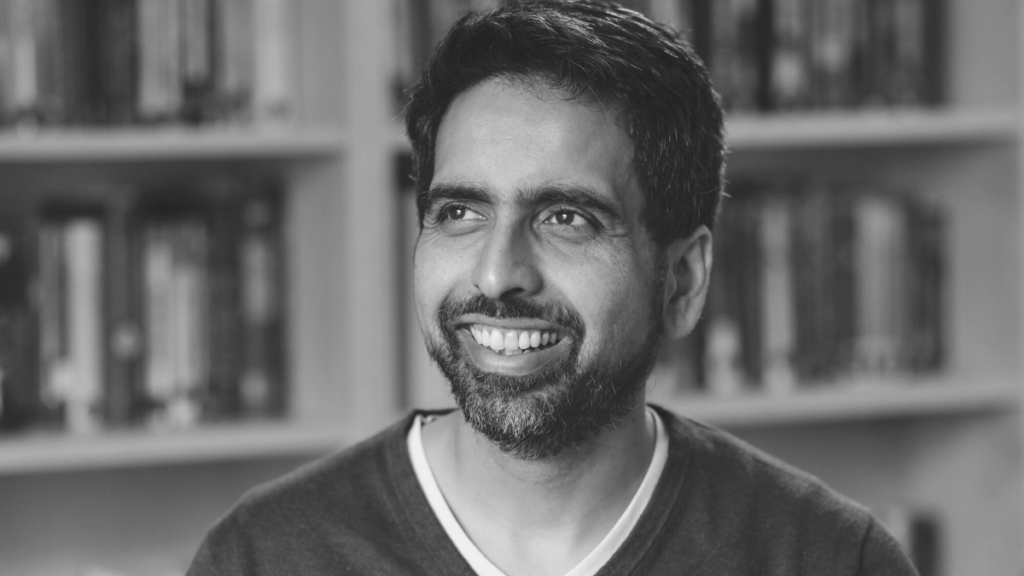In a particular hard time of my life, I landed what can be described as the dream job I have never dreamt of by providing support services for Khan Academy. Naturally, I am grateful to Sal Khan – me and many other people who have benefited from his pioneering online lectures. This book encapsulates much of the institution’s philosophy but its best part is how much it shows the person behind it all. It is always easy to look in hindsight, but I think it would be no exaggeration to say that a significant aspect of Khan Academy success is exactly this sense of intimacy, how personal it feels. Sal Khan proves to be not a distant, ascetic academic genius, but a very grounded, albeit passionate, person. Although he is incredibly ingenious and no doubt gifted, he never strikes us a show-off. His main goal is attested in the beginning: to teach. And in this he truly excelled.
The book’s style reflects this teacher-like approach as well as Sal’s admitted austerity (as he jokingly mentions, the Academy had a closet as its second headquarters – his so-called “monk’s cell”). The prose is very straightforward and economic. Sal doesn’t dumb down his ideas, but strives to make them readily accessible: it is simple, but not simplistic; it is short, but not lacking. It is also not a book filled with hard data and acerbic demonstrations of erudition. Although the book’s ideas do have a solid foundation, they are brought up with a sense of shared value, of trust in the sensibleness of the reader and, even, of a shared aesthetics.
Take for example Sal’s explanation of why he chose a blackboard instead of a whiteboard to deliver his lectures. He explains that, whereas the whiteboard suggests a sense of “blankness”, as if mechanically filling up empty spaces, making things emerge from the black void could entice suspense and arouse the magical feeling of enchantment that comes from learning. This is, of course, not founded in any particular psychological or pedagogical theory and could very well be refuted through a neatly designed experiment. Still, it doesn’t matter: the book – and Sal’s entire approach to teaching – succeeds because it appeals exactly to this sense of wonder and curiosity. We are not interested in his ideas only because they are right (as we very rarely are), but also because they are beautiful and exciting.
And about those: Sal argues that, because of its political origins – compulsory, tax financed education came to be in Prussia in the late eighteenth century mainly as means to create citizenship and obedience –, our educational system tends discourage free, associative thinking. We are so used to divide our education in “subjects” that we often fail to see how much the frontiers between those are blurry and how they limit our capacity for creative thinking. Furthermore, there are many aspects of this educational approach that, although justified at the time, seem unfit for our current needs: age separation, subject compartmentalization, progress based on time and not mastery (a key point of the book and of Khan Academy itself), and the ever-annoying ringing bells. It is remarkable that this 120-year model still stands whereas so many other human endeavors have fundamentally shifted from then to now. Medicine, economy, and politics (Prussia was a monarchy when the system was implemented) have all deeply transformed in the last century, but our educational system remains stubbornly stiff.
I would also highlight Sal’s emphasis on ethics. Although the books is not primarily about that, Khan Academy is as much an ethical as an educational statement. He clearly understands education in a broader, more sustainable, sense – as beneficial not only to the individual, but to the society. The idea of the whiz kid or the lone genius doesn’t seem to fit Sal’s views on education: he claims that even academic performance should be evaluated in terms of how much a student is capable to help their peers, which I fully agree. It is odd to think how much egotism has been normalized, even in school environment. No one expects that the brightest kids to be also the most generous and helping.

